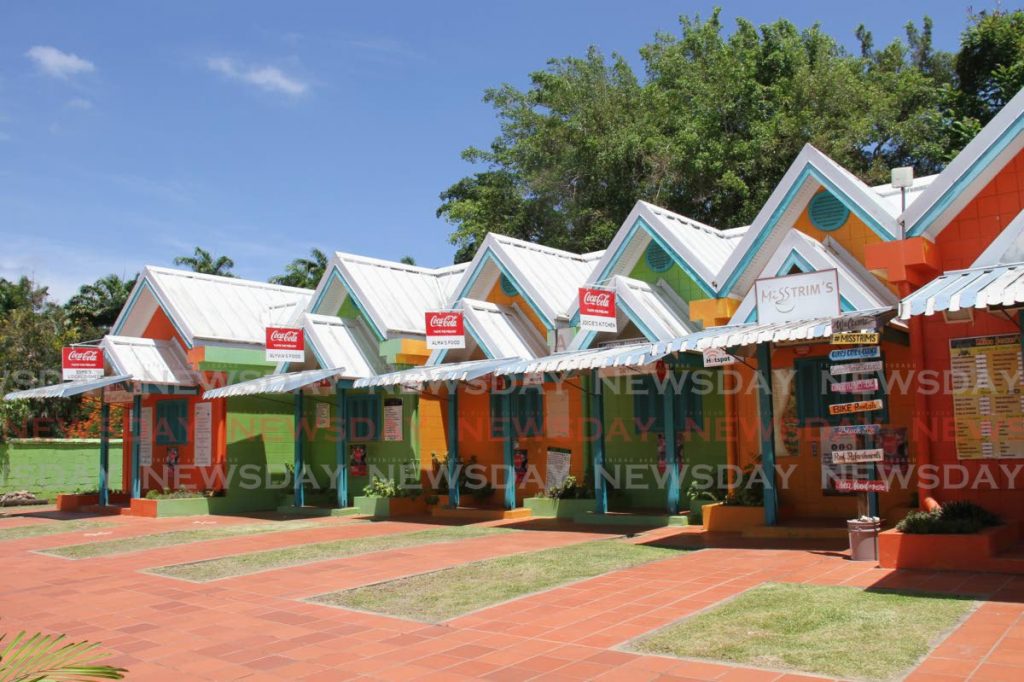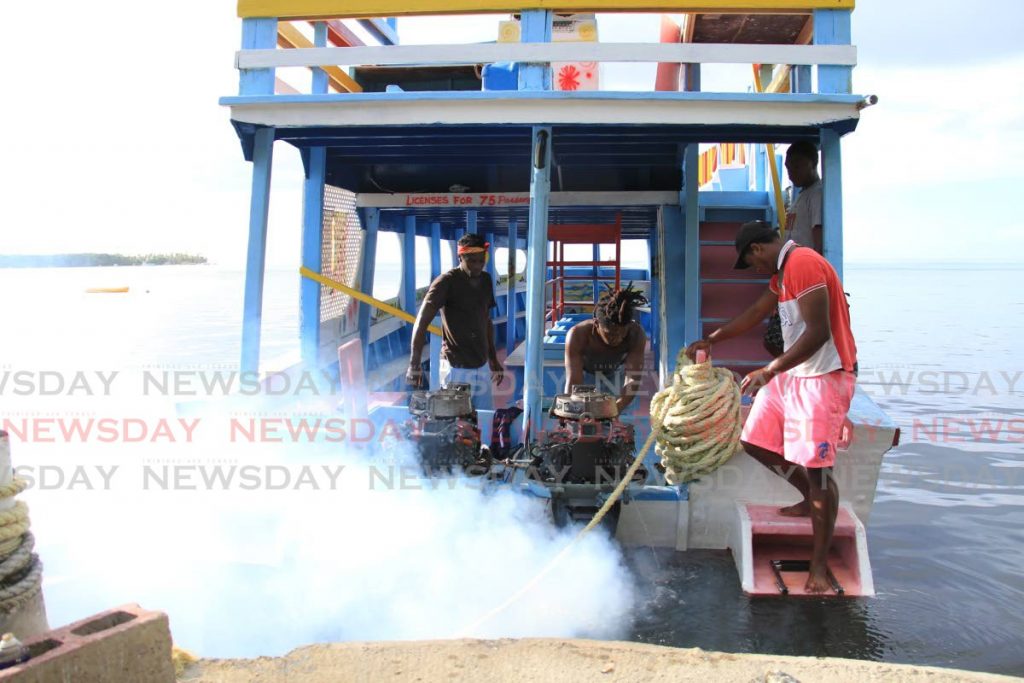Tobago's tourism needs more incentive to realise full potential

CHRIS JAMES
The Prime Minister recently announced that tourism and agriculture would be at the forefront of the economy’s diversification. Given this pronouncement, it was not unreasonable to expect that the budget statement presented in Parliament on October 5 by Finance Minister Colm Imbert would contain a comprehensive plan for the recovery of the tourism industry. Surprisingly, the budget spoke little to tourism, apart from the welcome continuation of the Tourism Accommodation Upgrade Project.
It is indeed puzzling why successive governments, despite lamenting the country's foreign exchange shortage, continually disregard one of the easiest and quickest ways to increase access to foreign currency. Surprisingly the World Travel & Tourism Council (WTTC) rates TT as a significant earner of foreign exchange through tourism in 2019 when compared to other Caribbean nations. (See chart)
Several important points to note:
• TT is one of the few countries in the region to experience a decline in travel and tourism in 2019;
• 7,000 of TT’s travel and tourism jobs are based in Tobago and account for 25 per cent of the island's workforce;
• Despite travel and tourism contributing less than eight per cent to GDP, TT still exceeds popular destinations with better airlift in travel and tourism revenue.

Although we are currently in the midst of a worldwide pandemic the Caribbean Hotel and Tourism Association (CHTA), the United Nations World Tourism Organisation (UNWTO) and the WTTC all predict that not only will the sector recover in 2021, by the third quarter of 2022 statistics will far exceed 2019 levels. The Government could prepare Tobago for a boom period and provide additional assistance for the tourism sector and the Tobago economy in general through the implementation of a few strategic policies and without putting additional strain on an already overburdened treasury.
The Tobago Hotel and Tourism Association (THTA) has proposed the following strategies for the recovery and revival of Tobago’s tourism industry:
• Establish a standing committee on tourism. Government should immediately reconvene the standing committee on tourism with membership culled from the Tobago House of Assembly (THA), the Ministry of Tourism, the Tobago Tourism Agency Ltd (TTAL), the Tobago Chamber of Commerce, the THTA and other industry stakeholders. This collaborative approach has proved to be highly successful: the last such committee achieved a 55 per cent increase in international tourist arrivals in three years (2002-2005) and secured nine additional international flights during the same period. International arrivals peaked at 87,796 in 2005 and have been on a precipitous decline ever since, slumping to under 20,000 in 2019.
• Extend bank moratoria on loan payments. Many businesses in TT are struggling to meet loan payments due to the loss of revenue caused by the coronavirus pandemic. Tobago has been particularly hard hit as the entire private sector is tourism and tourism related. The Bankers Association (BATT) could ease the pressure by encouraging its members to extend the current moratoria on loan payments for at least another six months.
• Expand the Government loan guarantee programme. Since 2012 a guarantee loan facility has been in place for qualifying properties in the Tobago tourism sector. The loan facility has so far only been extended to properties with between six to 50 rooms and the programme is undersubscribed. One of the reasons for this is that many small properties are unable to meet the strict lending criteria – primarily possession of public liability insurance, audited accounts, Town and Country Planning approval (outstanding issues with the Real Property Ordinance is still a problem) and tax clearance certificates.

Source: World Travel & Tourism Council 2020 -
The loan facility should be extended to include properties with more than 51 rooms and businesses within the allied tourism sector. Qualifying businesses should be given the opportunity to consolidate existing loans for 15 years at a low interest rate, thereby ensuring business continuity.
• Make additional funds available to Tobago’s accommodation providers through the Tourism Accommodation Relief Grant. Hoteliers took note of the minister’s statement that the grant is to "facilitate upgrades and financial support.” We are now almost seven months into the coronavirus pandemic. The $50 million grant was announced in March and TTAL began accepting applications to facilitate upgrades (excluding financial support) at the end of June. According to TTAL, 62 properties out of a potential 422 have been approved for financial assistance. To date six properties have received 50 per cent of the grant funds for which they applied.
The THTA anticipated that this initiative would be undersubscribed given the difficulty small business owners have in meeting the grant criteria. We also predicted that the actual amount of money disbursed would be significantly less than $50 million. In the seven months since the pandemic began, Tobago business owners have found themselves mired in debt. They are struggling to meet continuing operating expenses even though they remain closed and unable to earn revenue. Mortgages, loans, payroll, utilities, maintenance, security and creditors still have to be paid.
The $50 million has already been allocated and any remaining funds should be made available to qualified applicants to pay off debts accrued during the period in which businesses were closed. This will not be an additional drain on the treasury and will enable business owners to pay their staff and resume operations when advised by Government. This will also ensure that Government funds are being used for the purpose for which they are intended.
• Grant covid19 tax relief. Any measures taken by a business place because of the coronavirus pandemic, such as putting in additional infrastructure, staff training and purchase of specialised equipment, should be tax deductible at 150 per cent. This should apply to all registered businesses in Trinidad and Tobago.
• Grant value added tax (VAT) exemptions for Tobago-registered businesses for five years. This will have the double impact of stimulating economic activity and giving business owners much needed time to recover from the effects of the pandemic.
• Make Tobago a duty-free zone. This will greatly stimulate economic activity and encourage local, regional, and foreign patronage. It will enable Tobago businesses to offer competitively priced goods and services, such as all-inclusive accommodation, and attract visitors to the island.

• Use hotel tax revenue for marketing. Instead of paying hotel tax directly into the Consolidated Fund, create a separate marketing fund for part or all of the hotel tax revenue collected in TT. This is the norm in most tourism destinations. The funds generated will be supplemental to Government allocations to TTAL and Tourism Trinidad Ltd (TTL). With this additional funding both islands can compete on an international scale.
• Abolish the Land Licence Order of February 2007. This order has not worked the way in which it was intended and has instead seriously hampered Tobago’s economic development. Abolition of the Land Licence Order, together with VAT-free and duty-free incentives will actively encourage foreign direct investment in Tobago and boost the economy tremendously.
• Expand the quantity and quality of locally-qualified hospitality industry professionals. Tobago lacks qualified hospitality personnel. The Tobago Hospitality and Tourism Institute (THTI) is undersubscribed and the recent closure of the TT Hospitality and Tourism Institute (TTHTI) means prospective students now have fewer options. The THTI should be expanded to not only accommodate Trinidadian students, but regional students as well. This would involve offering more programmes and building accommodation for students. Tobago could become a regional centre for hospitality education.
• Infrastructure improvements. Tobago’s infrastructure is still underdeveloped. The island suffers from frequent power cuts, water shortages and poor connectivity. The issue of connectivity is particularly important for Tobago to claim its place as an accessible destination.
None of the aforementioned strategies will work without a dedicated, widespread public information campaign to educate the population on the benefits of tourism. Tourism is still widely regarded by Trinidadians and Tobagonians alike as an unimportant activity and the financial potential of the industry has yet to be realised. Young people must be encouraged to see tourism as a viable career option and take pride in contributing to the country’s economic recovery.
Now, more than at any time in the history of TT, is the time for tourism to stand in the spotlight and lead the diversification of the economy.
Chris James is the president of the Tobago Hotel and Tourism Association.

Comments
"Tobago’s tourism needs more incentive to realise full potential"